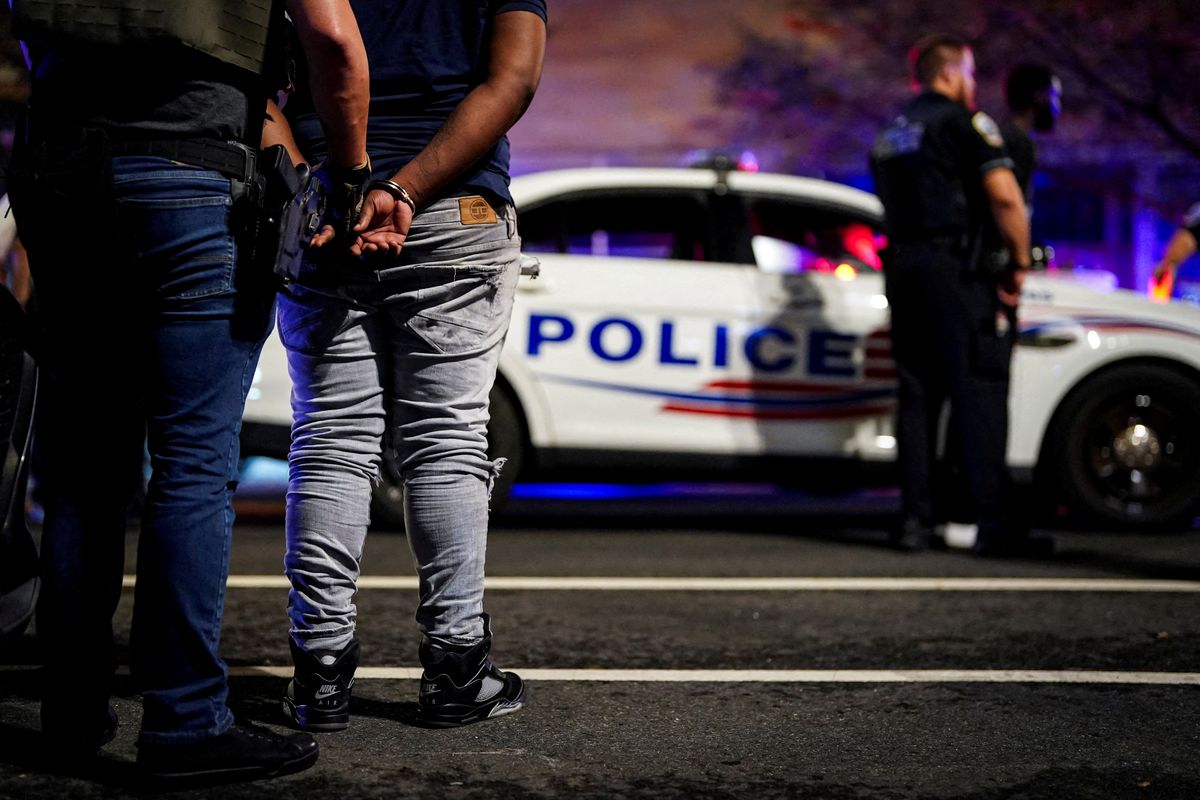
An immigration raid at a partially completed Hyundai-LG car battery plant in Georgia could wreck President Donald Trump's plans of reviving U.S. manufacturing, according to experts.
Federal agents rounded up and detained hundreds of foreign-born workers, most of them from the close U.S. ally South Korea, and immigration and manufacturing experts told The Washington Post that the incident underscored the ways American rules get in the way of building the types of factories Trump wants to see.
“Episodes like this are going to make many companies way more cautious before investing here,” said Giovanni Peri, a professor of economics at the University of California at Davis. “The goal of this administration’s tariffs was luring exactly these kind of factories, and now we are closing the door to some of these companies, who fear they won’t be able to bring in the right workers to set up their plants.”
Construction of those plants required specialized technical knowledge because battery plants are far more complex than traditional car assembly facilities, and they also involve proprietary industrial systems that most U.S. workers don't have the training to operate.
“We are more than capable of building and staffing those plants, but not instantaneously,” said Chris Nichols, CEO of the Interstate Renewable Energy Council, a group that is eager to see the United States resurgent in manufacturing these advanced technologies. “Just saying we are going to build the plant doesn’t create 500 to 1,000 highly specialized engineers and other workers who happen to be in Georgia.”
The United States doesn't have a visa program specifically aimed at those types of skilled workers, according to immigration lawyers and economists, and the Hyundai roundup brought the entire operation to a halt and embarrassed South Korean officials.
“The reason we asked Hyundai to come here to build this is because Hyundai knows how to do it,” said Charles Kuck, an attorney for a dozen employees who were detained. “We haven’t been making these types of batteries in the U.S. We don’t have the equipment. All of it is created and made abroad. If you want a battery plant inside the U.S. you have to import these machines. You need to bring the people who make them in to service and install that equipment.”
Immigration lawyers say most of the workers were in the U.S. with permission, and the 300 Korean workers had received clearance from officials to work on the plant and had been reporting their whereabouts.
“We invited these companies here, we asked them to build their plant here,” Kuck said. “Did we think they were just going to put stuff on a ship and say, ‘Good luck?’”
John Lettieri, CEO of the Economic Innovation Group, said the episode showed the need for training American workers with the specialized knowledge needed to build advanced facilities, but he said the president's economic agenda was at odds with his immigration policies.
“The president is being poorly served by zealous advisers unable to distinguish between enforcement theater and the value of deepening our economic relationships with firms and countries pouring a lot of investment into our economy,” Lettieri said.




